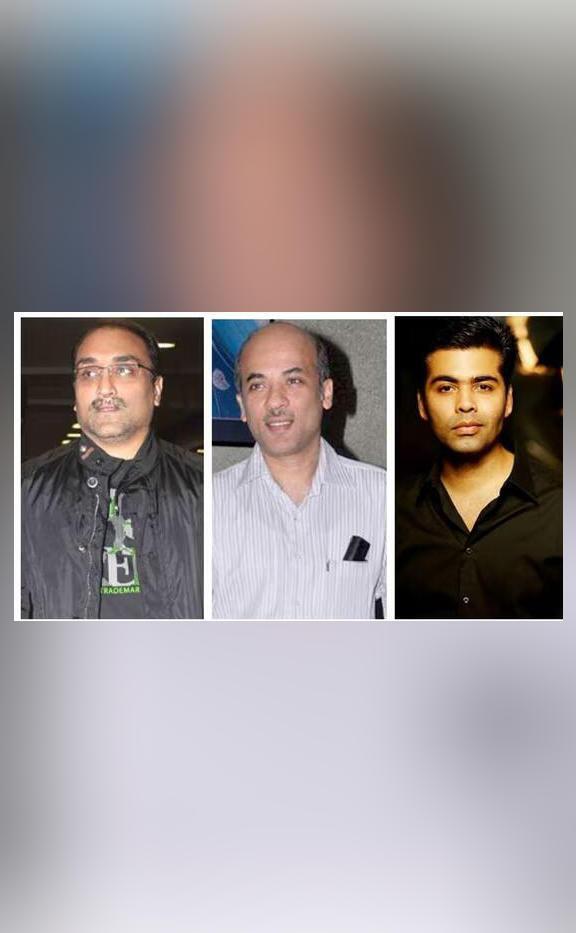
Title: Karan, Aditya & I Born with Golden Spoons, Sell Fairytale: Sooraj
When we think of Bollywood, we often associate it with glamour, glitz, and a touch of magic. But behind the scenes, the industry is a reflection of the society we live in, with its own set of privileges and biases. Recently, filmmaker Sooraj Barjatya made a candid confession about the Bollywood elite, stating that he, Karan Johar, and Aditya Chopra were born with golden spoons. In an interview, he revealed that they have never experienced the hardships of life, and their upbringing was a fairytale come true.
The 90s were a defining era for Bollywood, with the industry witnessing a surge in popularity and success. Sooraj Barjatya, who is known for his family dramas and romantic comedies, was at the helm of this era. His films, such as “Maine Pyar Kiya” and “Hum Aapke Hain Koun..!”, were massive hits, and his production company, Rajshri Productions, became synonymous with quality family entertainment.
In his recent interview, Sooraj Barjatya spoke about the privilege that came with being part of the Bollywood elite. He said, “We have always travelled in cars. We showed the kind of world that was a fairytale, and the 90s were an era when the audience wanted to see fairytales.” His statement is a stark reminder of the reality that not everyone has the same privilege as the Bollywood bigwigs.
Born into a prominent family, Sooraj Barjatya’s journey in the film industry was almost predetermined. His father, Rajkumar Barjatya, was a renowned filmmaker and producer, and Sooraj grew up learning the ropes of the industry from a young age. Similarly, Karan Johar and Aditya Chopra come from influential families in the industry. Karan’s father, Yash Johar, was a successful producer, and Aditya’s father, Yash Chopra, was a legendary director and producer.
Their privileged upbringing has given them a unique perspective on life, and they have used this to create films that cater to the aspirations and desires of the Indian audience. Sooraj Barjatya’s films, for example, often showcase the idealized version of Indian family life, with its emphasis on love, sacrifice, and tradition. These films have become a staple of Indian cinema, and their success has been phenomenal.
However, not everyone has been as fortunate. Many aspiring filmmakers and actors have struggled to make a name for themselves in the industry, facing numerous challenges, rejections, and setbacks along the way. The competition is fierce, and the road to success is often long and arduous.
Sooraj Barjatya’s statement about being born with golden spoons is a commentary on the privilege that comes with being part of the Bollywood elite. These individuals have been given a head start in life, and their success is often attributed to their family background and connections. This is not to say that they are not talented or hardworking, but it is undeniable that their privilege has played a significant role in their journey.
In an industry where nepotism and favoritism are rampant, Sooraj Barjatya’s confession is a refreshing change of pace. He is acknowledging the privilege that he and his peers have enjoyed, and he is highlighting the need for more diversity and inclusivity in the industry.
The 90s were an era of great change and upheaval in India, with the country witnessing significant economic and social reforms. The Bollywood industry reflected this change, with films that catered to the new aspirations and desires of the Indian audience. Sooraj Barjatya’s films, in particular, were a testament to this change, with their emphasis on love, family, and tradition.
In conclusion, Sooraj Barjatya’s statement about being born with golden spoons is a commentary on the privilege that comes with being part of the Bollywood elite. While it is true that these individuals have faced fewer challenges and obstacles than others, it is also important to acknowledge their hard work and talent. The industry needs more diversity and inclusivity, and by acknowledging their privilege, Sooraj Barjatya is taking a step in the right direction.
Sources:






